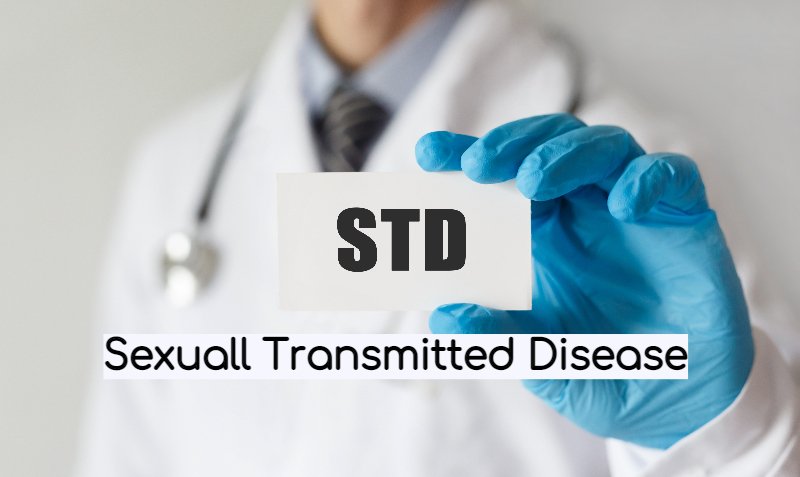Sexually transmitted diseases (STDs) encompass a range of infections transmitted through sexual contact. Treatment for STDs depends on the specific infection and its severity. Here’s an overview of common STDs, their treatments, and general management strategies:
1. Bacterial STDs
a. Chlamydia
Treatment: Typically treated with antibiotics such as azithromycin (single dose) or doxycycline (7 days).
Follow-Up: Test-of-cure is generally not required unless symptoms persist or there’s concern about treatment failure.
b. Gonorrhea
Treatment: Often treated with a combination of antibiotics, such as ceftriaxone (injection) plus azithromycin (oral) or doxycycline.
Follow-Up: Rescreening may be done to ensure the infection has cleared, especially if symptoms persist or if there is high risk of re-infection.
c. Syphilis
Treatment: Treated with benzathine penicillin G (an injection). The dose and duration depend on the stage of the infection.
Follow-Up: Follow-up blood tests are required to ensure the infection has been cleared and to monitor for potential complications.
2. Viral STDs
a. Human Immunodeficiency Virus (HIV)
Treatment: Antiretroviral therapy (ART) is used to control the virus. This involves a combination of medications to reduce the viral load to undetectable levels and maintain immune function.
Follow-Up: Regular monitoring of viral load, CD4 count, and potential side effects of medication is essential.
b. Herpes Simplex Virus (HSV)
Treatment: Antiviral medications such as acyclovir, valacyclovir, or famciclovir can help manage outbreaks and reduce transmission. They are typically taken as a daily suppressive therapy or during outbreaks.
Follow-Up: Regular medical follow-ups to manage symptoms and prevent recurrent outbreaks.
c. Human Papillomavirus (HPV)
Treatment: There is no cure for HPV, but treatments are available for related conditions such as genital warts (topical treatments, cryotherapy) and precancerous changes (surgery, laser treatment). Vaccination is available to prevent certain high-risk strains of HPV.
Follow-Up: Regular screening (Pap smears, HPV tests) for women to monitor for cervical changes.
d. Hepatitis B
Treatment: Chronic hepatitis B may be managed with antiviral medications such as tenofovir or entecavir. Acute hepatitis B generally resolves on its own, but supportive care is important.
Follow-Up: Regular monitoring of liver function and viral load.
e. Hepatitis C
Treatment: Direct-acting antivirals (DAAs) such as sofosbuvir, ledipasvir, or a combination are highly effective in curing most cases of hepatitis C.
Follow-Up: Post-treatment testing to confirm viral eradication and monitor liver health.
3. Parasitic STDs
a. Trichomoniasis
Treatment: Typically treated with antibiotics such as metronidazole or tinidazole (single dose or a 7-day course).
Follow-Up: Re-testing may be necessary to ensure the infection has been cleared.
4. General Management and Prevention
a. Regular Screening:
Routine Tests: Regular screening for STDs is important for sexually active individuals, especially those with multiple partners or at high risk.
Partner Testing: Both partners should be tested and treated to prevent re-infection.
b. Safe Sex Practices:
Condom Use: Consistent and correct use of condoms can reduce the risk of many STDs.
Open Communication: Discussing sexual health and STD status with partners can help manage and prevent STDs.
c. Vaccination:
HPV Vaccine: Recommended for adolescents and young adults to prevent HPV infection.
Hepatitis B Vaccine: Recommended for individuals at risk of hepatitis B.
d. Follow-Up Care:
Monitoring and Support: Regular follow-up with healthcare providers to manage symptoms, monitor treatment effectiveness, and prevent complications.
When to Seek Medical Help
If you suspect you have an STD or are experiencing symptoms such as unusual discharge, pain during urination, sores, or rashes, it’s important to seek medical evaluation and treatment. Early diagnosis and treatment are crucial to managing STDs effectively and preventing complications. If you’re in a high-risk group or have been exposed to an STD, proactive testing and treatment are essential.









